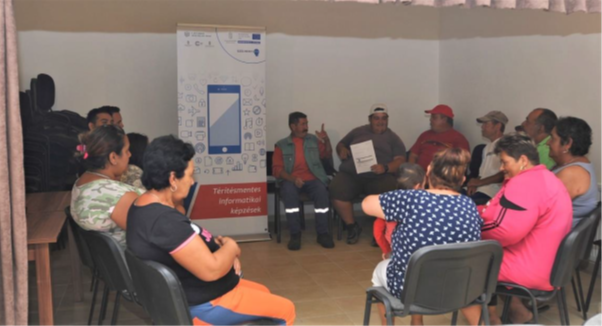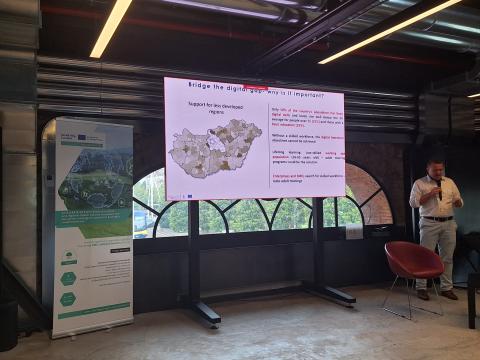Bridging the digital gap in Hungary
The main goal of the strategy is to give everyone the basic digital skills necessary for the labour market. Hungary also launched a National Digital Jobs Coalition in December 2016. Only 50% of the country’s population has basic digital skills and levels are well below the EU average for people over 55 (21%) and those with a basic education (25%). The “Bridge the digital gap” project is part of Hungary’s Digital Education Strategy. It aims to provide training in basic digital skills to 260 000 people by 2020, covering all regions of Hungary except Central Hungary, where Budapest is located and levels of basic digital skills are higher.
The Digital Competence Framework (DigComp) can help with self-evaluation, setting learning goals, identifying training opportunities and facilitating job search. The project is testing DigComp as a general, novel framework for digital skills.
The project included a pilot phase, which translated Dig- Comp 1.0 into Hungarian and developed a training package for the two basic levels of the framework, with study materials and a self-assessment tool, approved by the National Office for Vocational Training and Adult Learning in May 2016. The training package IKER I-II was tested by three pilot groups before it went public.
By the end of January 2019, almost 149 000 people - including 102 000 women - had received training from some 280 training providers. Participants were satisfied with the content and the speed of the training, and many recommended the course to others in a similar situation. It made them more confident in the basics of using a computer, the Internet and e-mail.
The value for the labour market was to enable people to take the first steps towards having the flexibility needed in a rapidly-changing digital world.
DigComp 2.1 has been introduced in several Member States already. The Hungarian approach could be interesting for those countries where there are a relatively large number of low-skilled adults still lagging in terms of basic digital skills.

